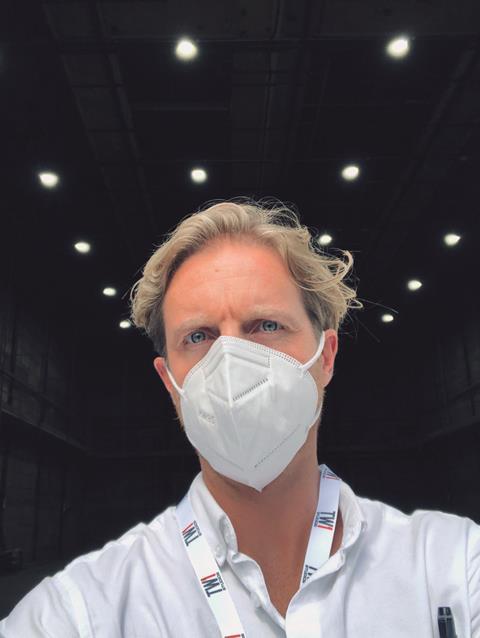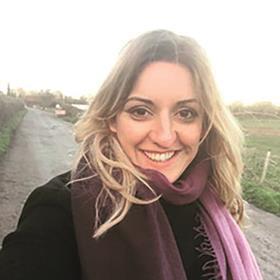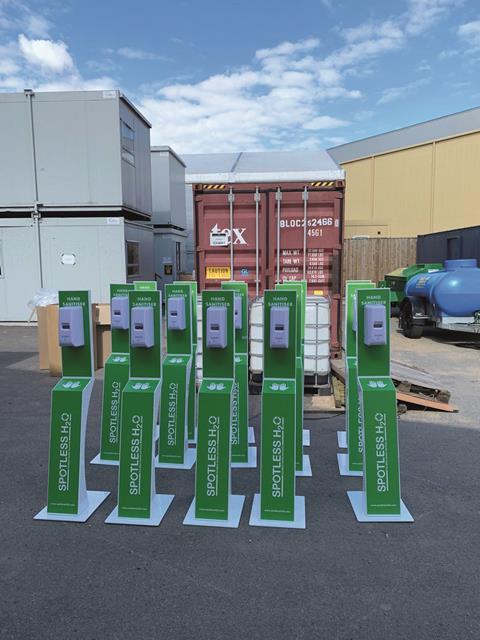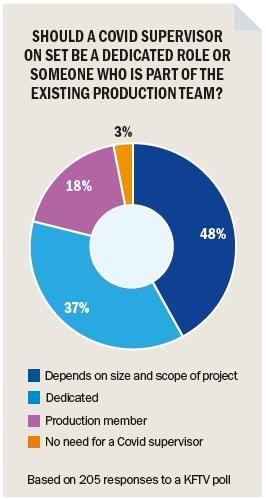Covid supervisors: Adapting to the new normal
KFTV talks to Covid supervisors and their teams about what they do and how much power they wield on set
By Chris Evans 7 Oct 2020

Covid supervisors have become a familar sight on the set of productions as the industry gets back up and running. But what do they do and how much power should they wield?
Many in the industry will now be used to the presence of a Covid supervisor or co-ordinator on set. This new role has been created to ensure the production cast and crew are meeting safety protocols and procedures.
The supervisor role is ideal for someone with plenty of production experience – those with a sense of authority and an understanding of the logistics of putting together a project. In that respect, it’s a role that could be taken on by a member of the production team, such as the location manager, production manager or line producer.
The advice, encouragement and discouragement (of inappropriate Covid behaviour) of Covid supervisors has proved invaluable and helped many productions get back up and running.
“We had one director trying to convince everyone that we could shoot in a boat out at sea with a couple of A-list celebrities. I blew my top at the producer. That’s why there’s a need for supervisors, to make sure the guidelines are adhered to,” says one Covid supervisor who preferred to remain anonymous.
Need for guidance
But why and how did the role come into existence? The backdrop is obvious. After the Covid-19 virus shut down most productions for a few months from March this year, the new landscape that has emerged since lockdown has been eased is distinctly different to pre-Covid times, with ‘guidelines’, ‘protocols’ and ‘PPE’ the common vernacular.
But it was specifically the Covid-19 Guidance about working practices, co-ordinated by the British Film Commission (BFC), that first proposed the need for a Covid supervisor on set.
“We felt it was important to have a person on set to oversee working practices and health & safety guidelines, as well as to be a point of advice for each department,” says Adrian Wootton, chief executive of the British Film Commission.
The supervisor could either be someone embedded in the production, who receives relevant training – from the likes of ScreenSkills and/or First Option Safety Consultants – or a specific health & safety production expert brought onto a production to help draw up risk assessments, as was the case with Matt Spooner on Mission: Impossible 7.
The initial difficulty is establishing the exact role and responsibilities of these Covid supervisors. “We were clear this was different to a health & safety consultant working on a production, partly because we could see there weren’t going to be enough of them,” says Paul Greeves, managing director of First Option, who helped the BFC put together the guidance.
“It was agreed there needed to be a special role and maybe more than one, and that those undertaking the role needed to help manage the new and unfamiliar systems and protocols.”
What was also clear was that these Covid supervisors would need training and support.
This is where Covid production training providers like First Option can be particularly helpful. Early on, the firm created the Managing Covid- 19 Risks On Productions course – a two-hour introduction to the protocols. “We’ve already trained 6,700 people in the past few months on that,” says Greeves.
First Option was also involved with ScreenSkills on the UK film and TV training body’s free online course, launched in June. It then went a step further and created a course specifically for Covid supervisors, which has already been taken by 112 people. “We decided the training should be in line with our recognised Safe Management of Production course,” says Greeves. “It consists of an introduction about Covid and protocols, plus training on health & safety basics, duty of employers and employees, risk assessment, hierarchy of controls and so on.”
This ‘hierarchy of controls’ has proved a particularly big talking point. Some producers, and indeed crew members, have been concerned that they’re going to have their every move scrutinised and criticised – and potentially even have productions halted by Covid supervisors.
But Wootton insists: “The Covid supervisor isn’t there to be an allseeing god who can pull the plug. He/she is there to remind, communicate and ensure the production conforms with the appropriate health & safety and risk assessments. They are working for the line producer or unit production manager. The ultimate Covid supervisor is the producer.”
This is a stance supported by many covid supervisors.
“The people on set realise it’s not about me giving opinions, instructions and telling people off. What we’re doing is for their health & safety and that of the industry,” says scriptwriter/director/AD and now Covid supervisor Alex Kemp. “It’s about giving people information so they understand what’s important and can carry on doing their job without being drowned in confusing protocols.”

Kemp has worked as a Covid supervisor on a film for ITV’s Unsaid Stories series and within the sound department of Kenneth Branagh’s Death On The Nile, which has been filming at Twickenham Studios. He also helped put protocols in place for Ben Wheatley’s forthcoming drama The Woods.
For The Woods, Kemp was advising the production team how to work on a smaller scale, within a Covid bubble, while ensuring physical distancing for camera tests, crew and equipment sanitisation, and creating one-way systems.
In contrast, for Unsaid Stories, Kemp was working with only the camera man and sound operator on set, and communicating with the rest of the production team, including the director and production designer, via Zoom. “Lots of learnings came from that. Remote communication was challenging,” he says.
“It’s a bit like trying to reinvent the wheel,” says experienced location manager Georgette Turner, LMGI, who is currently working as a Covid unit production manager on a high-end
Apple TV show filming in the UK. “A lot of it is about preparation. We looked at each space, making sure we could put in our isolation measures, stickers, one way in and out, and establishing where people could go and who they could interact with on set, while at the same time looking at who could potentially work from home. That requires changing of mindsets.”
Greeves adds: “We [trainers, production teams and Covid supervisors] are feeling our way with this, seeing what works and what doesn’t. It’s important for the Covid supervisors to not be over-prescriptive with measures because this can be counterproductive. It’s easy to offend people’s common sense; once you do that, you lose them on the bigger things.
“While in the outside world there’s a great deal of confusion around what you can and can’t do, there’s actually a greater sense of understanding on set about distancing, hygiene, testing and who can interact with whom. We’re finding a way to get the industry running again.”
This article was taken from a special Covid-19 production report, published by KFTV, in partnership with Screen International, Broadcast and The Knowledge
TIPS ABOUT STAYING SAFE ON SET
Georgette Turner, LMGI, location manager

As co-founder of production cleaning company Spotless H2O Services, I’m quite knowledgeable about all things cleaning. I even wrote an online course about being safe on set, what chemicals to use and all the health & safety procedures that go with it.
So when I was approached by the line producer on a new Apple series to be the Covid supervisor, I suggested I be the Covid UPM, which comes with a little more gravitas. A Covid supervisor will enforce and put protocols in place, whereas I’m designing the protocols. I am dealing with cast and their quarantining, speaking to agents and producers, deciphering the Covid manual, and putting policies in place with the assigned health & safety company.
We’ve also created our own Covid team with a representative for each department and space. Plus, because we have US guys working on the production, we have to follow stricter Directors Guild of America guidelines too – such as having five Covid inspectors overseeing the needs of each working pod we’ve created.
You get some who freak out, others who are grateful to have me because they know me. The important thing is explaining ‘this is the roadmap we have. I will keep you safe, you may not always like me, but I have your best interests in mind at all times’.

Latest news & features
Promote your services with KFTV
Choose from three profile types - Basic, Silver and Gold
Create ProfileWe offer a range of display advertising opportunities.
Learn More



